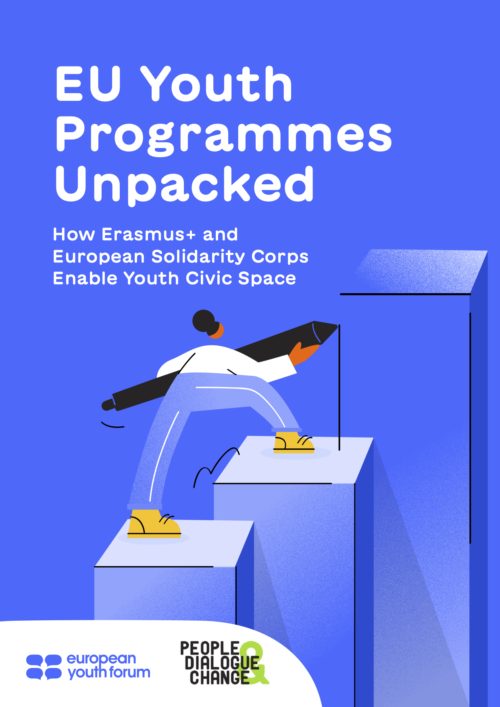EU Youth Programmes Unpacked: How Erasmus+ and European Solidarity Corps Enable Youth Civic Space
This report explores how youth organisations experience the EU Youth Programmes—Erasmus+ and the European Solidarity Corps—beyond the scope of the European Commission's mid-term evaluation. It offers a youth perspective on the ongoing discussions around the mid-term evaluation of EU funding programmes, focusing on how well these initiatives meet the needs of young people and the realities of youth civil society. By looking at the current implementation of these programmes, the report highlights key opportunities and challenges for youth-led organisations and their role in strengthening youth civic spaces, providing valuable insights for future programme negotiations and improvements.
Would you like to know more? Get in touch!

Related publications

Non-EU European countries' inclusion in Erasmus+
As youth organisations, we highly appreciate the Erasmus+ programme. However, currently, many countries in Europe that share these principles do not fully benefit from the opportunities offered by Erasmus+.

The future is Erasmus: more funding for Erasmus+
The mid-term review of the current Erasmus+ Programme (2021-2027) set to be published in July 2025, provides a critical opportunity to reflect on the programme’s successes and challenges while preparing for the next phase. In light of this, the European Youth Forum and its members must actively campaign for a significantly increased budget for Erasmus+ under the next MFF.

Principles for a Better Erasmus+ in the next Multiannual Financial Framework
Erasmus+ empowers youth, builds skills, jobs, and solidarity across Europe. To face rising challenges, we need to expand the programme and increase funding. A stronger Erasmus+ means a more democratic, inclusive, and resilient Europe for everyone.
